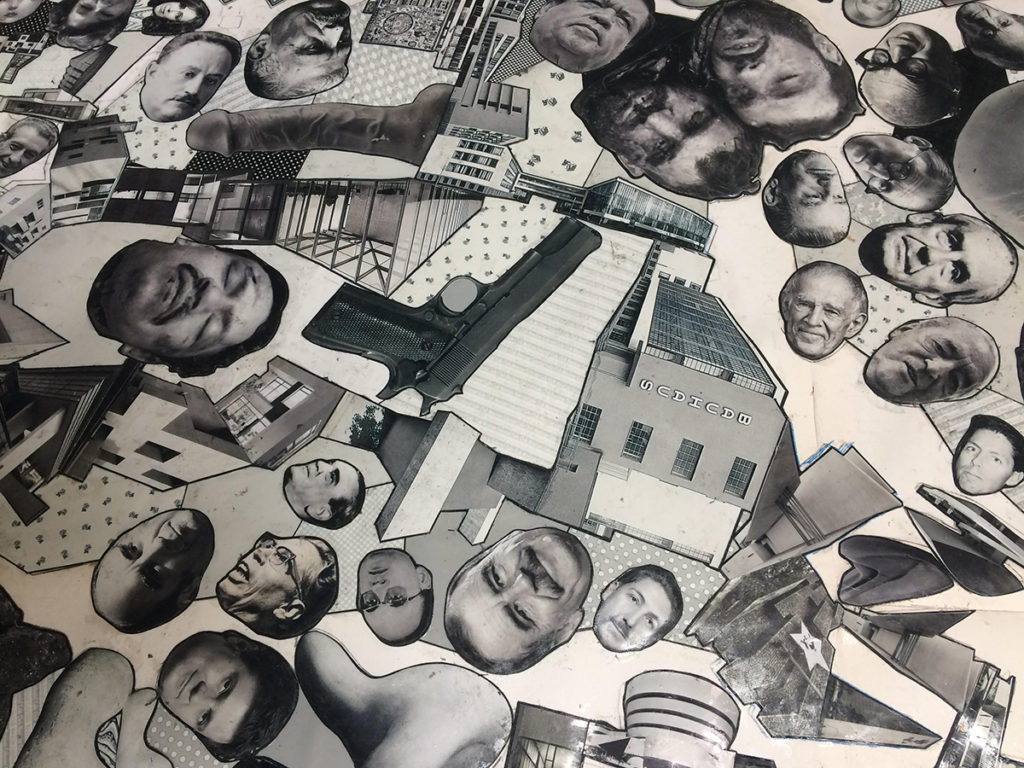Miguel Ventura’s (b. 1954, San Antonio Texas, U.S., based in Mexico City) collages juxtapose an array of apparently disparate elements: Classic Modern architecture and contemporary iconic Starchitecture, modern and contemporary art, images of celebrities, contemporary artists, politicians, dead bodies, a swastika every now and then, all arranged beautifully in intricate patterns. Similar juxtapositions appeared in a gigantic collage as part of Ventura’s 2008 installation Cantos cívicos at MUAC (University Contemporary Arts Museum, Mexico City), which gained the artist censorship, a civil lawsuit and accusations of making a “carnival of symbols” in which he effectively juxtaposed (not amalgamated as many claimed) Nazism and neoliberalism. For the most part, the reception of his work neutralized its complexity dismissing the terrifying image of the present offered by his collages. In the avant-garde tradition, Ventura’s juxtapositions make visible the faces, corporations, foundations and organisms that are part of the neoliberal economic political system thus transgressing the etiquette of controversy and politicized art that has been established by the Artworld in the past decade or so, based on counter-information, testimony, a politics of recognition or art production geared at reconstituting the social tissue. In contrast, Ventura’s collages confront Mexican society with the root of endemic violence, which is racism as structured by colonization, and presents a different image of contemporary “democratic” Mexico than do contemporary art, literature, film and the mass media. Ventura posits Modernism as a blind utopia of progress used to justify the dispossession of the commons behind the War on Drugs since 2006. A Modernized, globalized aesthetic sensibility traduced to the collective belief that “Mexico is the Shit” is established as covering the ongoing mass disappearances, murders and displacement of indigenous populations across a country in which reality is perceived as “dangerous,” which serves as an excuse to militarize the country and criminalize resistance through extrajudicial disappearances and other legal and illegal discursive State apparatuses of violence.
Irmgard Emmelhainz
